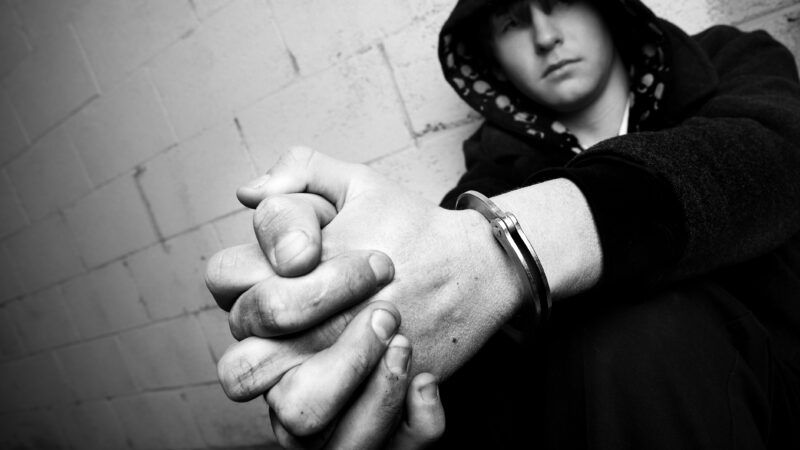Illinois Department of Children and Family Services Wrongfully Jailed Children for Months, New Lawsuit Alleges
"Sometimes I even feel like they wanted me in there, because I was in there so long," said one 18-year-old who was wrongfully incarcerated for 166 days.

A new class-action lawsuit alleges that the Illinois Department of Children and Family Services (DCFS) knowingly allowed hundreds of children to be wrongfully incarcerated in juvenile jail. According to the suit, the agency failed to find appropriate placements for the children, leaving them incarcerated for as long as 240 days after a judge ordered their release.
"Sometimes I even feel like they wanted me in there, because I was in there so long," Janiah Caine, an 18-year-old class representative in the lawsuit who was wrongly incarcerated for 166 days, told CBS. "It's a lot of emotions and feelings that you feel—because nobody wants to be in a horrible place like that, where you're fighting girls."
According to the lawsuit, DCFS officials have allowed children to languish in juvenile jails long after judges had ordered their release to an appropriate guardian. The children listed in the suit were all suffering from serious mental health conditions or other disabilities and had come into contact with the juvenile justice system, leading them to be placed in jail. However, they remained in jail long after a court ordered their release because DCFS failed to find appropriate placements for them. In 2021, children in DCFS care were incarcerated for an average of 40 days after they were ordered to be released. In total, these children were wrongfully jailed for 3,200 days in 2021.
The lawsuit claims this practice has continued for over 30 years, despite DCFS officials being well aware of the problem. "Each of the Defendants named in this lawsuit has been made aware of this longstanding problem through their positions at DCFS, including through court filings and hearings, correspondence, meetings, internal data and reports, the legislature, media, and other sources," the complaint alleges.
Further, the complaint states that a 2016 report from the Illinois auditor general found that, "Despite being well-aware of the problem of children in its care being unlawfully incarcerated in juvenile jails after orders for their release, DCFS had taken no steps to track scheduled release dates for these children and had failed to develop any procedures for placing children who are ready to leave juvenile detention centers."
Wrongful incarceration has been devastating for affected children. According to the complaint, while all of the class representatives listed had mental health or learning disabilities, almost none received appropriate mental health services while incarcerated. Many were denied appropriate educational services, leading to large educational gaps. For one child who was wrongly incarcerated for more than 240 days, "incarceration significantly exacerbated his trauma and caused his mental health to deteriorate, undermining his safety and stability." Further, the child "has an [individualized education program] to address his multiple learning disabilities, and he was recommended to have specific special educational services," which he didn't receive during his incarceration.
Multiple children were even prevented from attending family funerals due to their wrongful incarceration, including Caine—who missed her grandmother's funeral seemingly because her caseworker couldn't be located. "They were taking so long to find my DCFS case worker because nobody knew where she was," Caine told CBS. "I felt horrible. I felt so many emotions, like anger, sadness - because I loved her so much."
While this lawsuit is not the first time attention has been brought to this issue, the threat of a hefty legal payout to victims will hopefully spur DCFS officials to change course.
"If DCFS continues to have these policies that hurt children, then they will pay," Russell Ainsworth, an attorney in the case, told CBS. "And they will pay until they stop doing it and it never happens again to another child."


Show Comments (27)